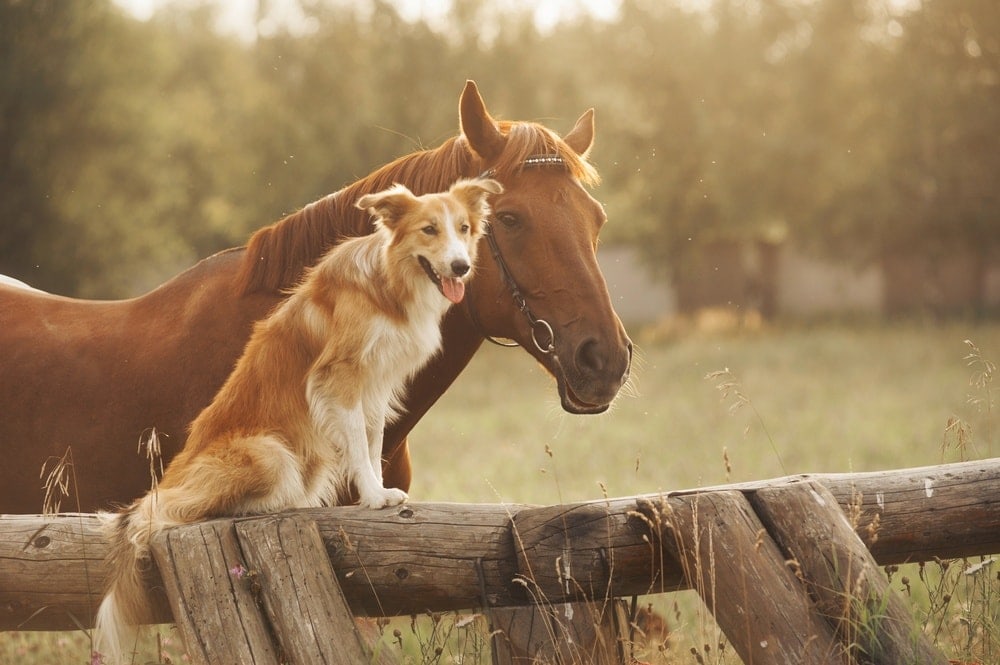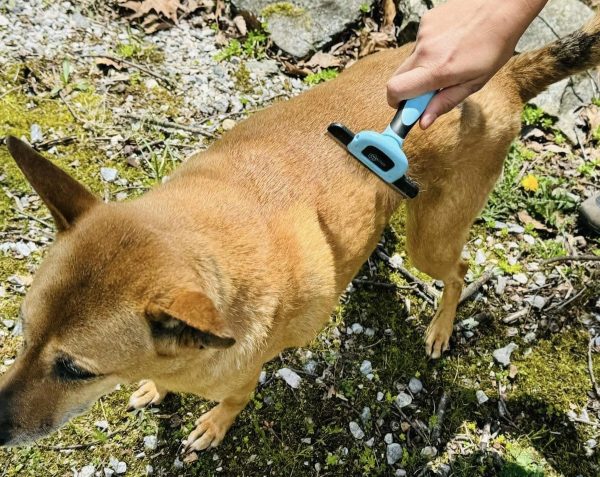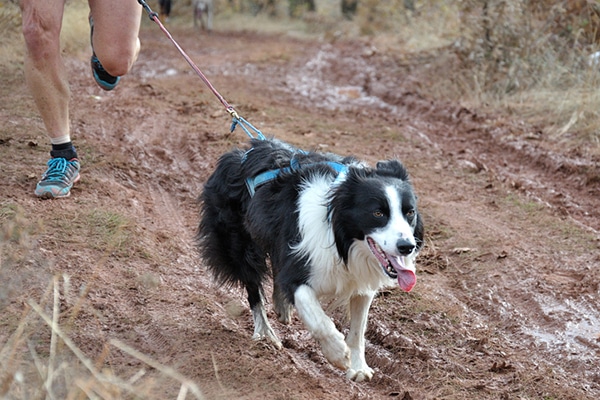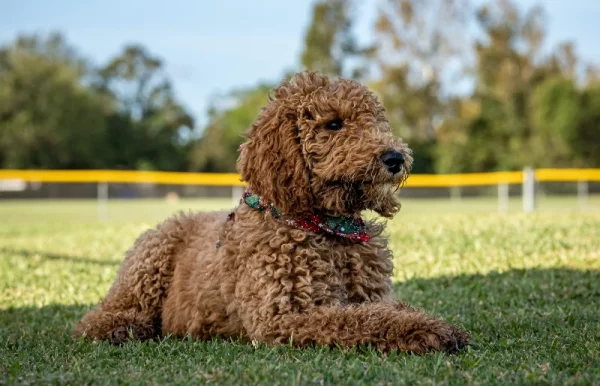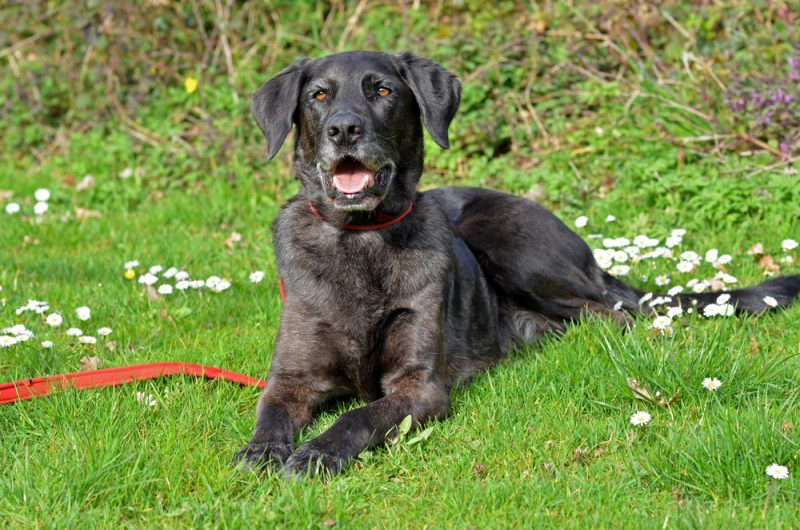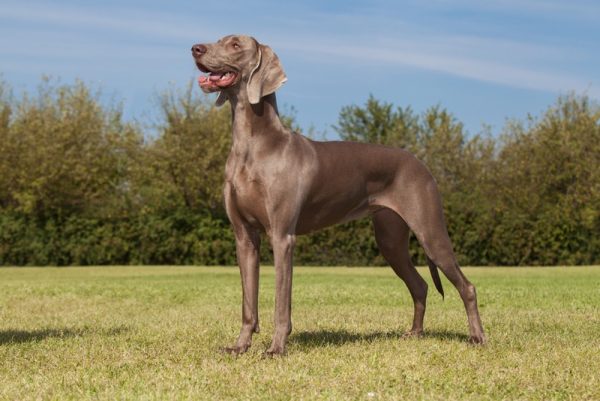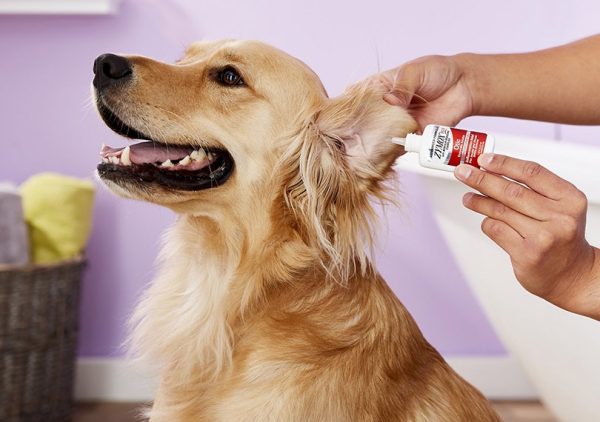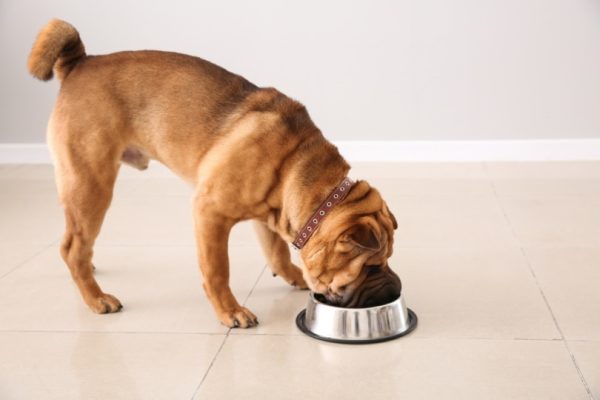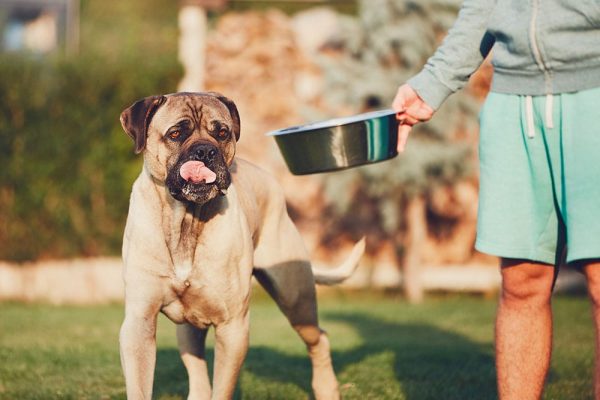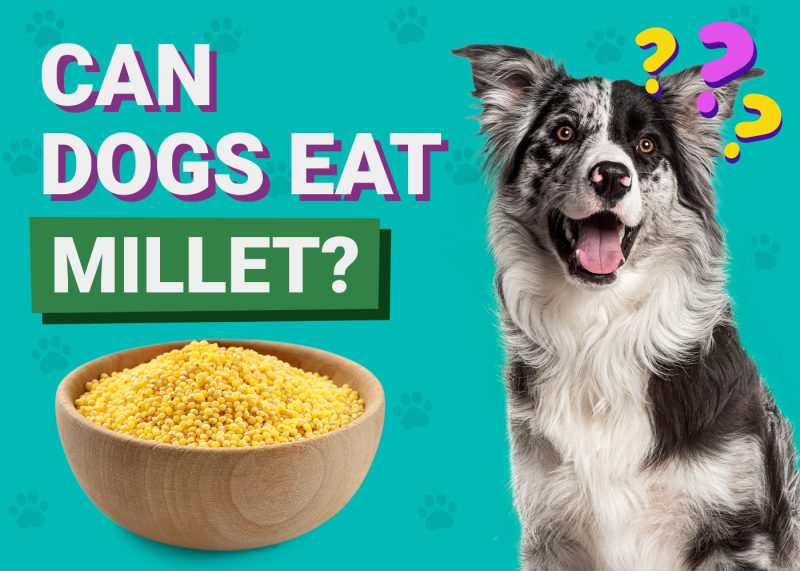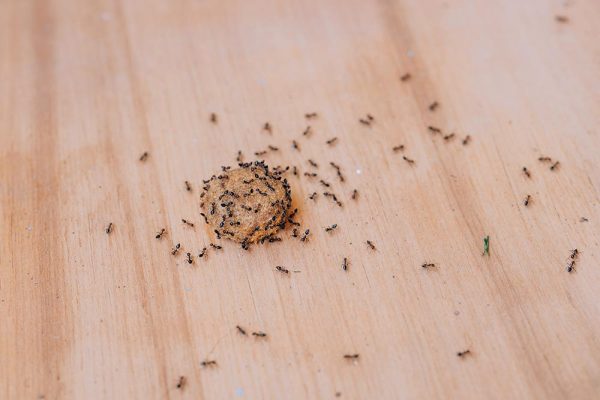Having a dog is a good idea in virtually any scenario, but some breeds are especially useful to have on the farm. Granted, you are not going to see a Chihuahua out on the farm helping the farmer pull carts. But some canines are hard-working farmhands that become integral to the farm’s success. In this article, we will discuss the benefits of farm dogs and which breeds excel at farm work.

The 7 Greatest Benefits of Having Farm Dogs
Dogs have impacts on humans emotionally, physically, and psychologically. They are the owner’s best friend, but some are more suitable for farm work than others. Here are some of the ways dogs help out farms.
1. Dogs Keep Predators at Bay
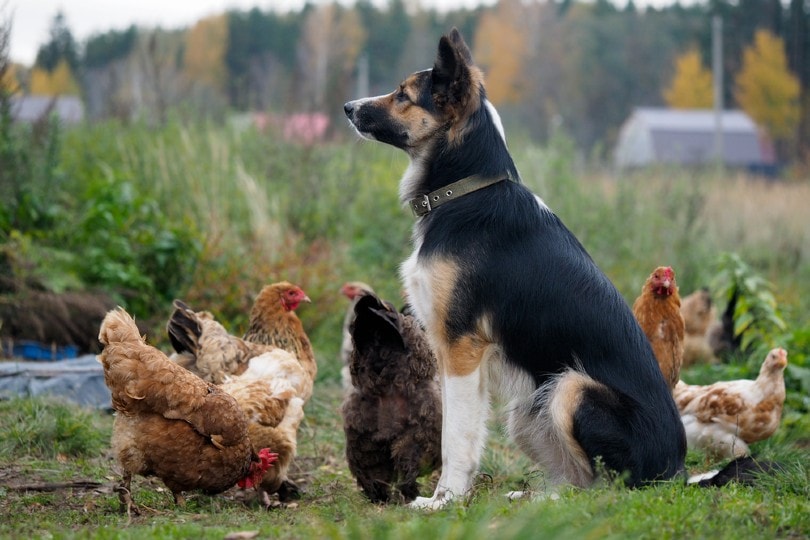
One of the most amazing things about our canine pals is that they smell 10,000 times better than we do. Their sense of smell is incomprehensible to us, and your dog can help you with pesky issues like running off the fox that’s after your chickens.
Likewise, many wild animals will be put off by the smell of a dog on your property. If they know that a predator is lurking around waiting for them, they are less likely to attack the livestock.
2. Dogs Help with Daily Tasks
There are so many training opportunities for farm dogs. They are capable of learning advanced and simple concepts with proper training. You can instruct them to guard your livestock or to attack potential predators.
If you want your dog to be a real farmhand, several breeds have the capability and potential.
3. Dogs Ward Off Potential Dangers
If there is any threat on your farm, your dog will be the first to let you know. Their impeccable senses will let them know when an invader is near, and they will respond accordingly.
Some dogs will shout a warning, while others might go into attack mode, depending on the perpetrator.
4. Dogs Can Sense When Animals Are in Need

Dogs are highly intuitive, receptive creatures with pretty good judgment most of the time. If your dog senses something isn’t right with another animal, they may give you visual cues to notify you.
Every dog is different, and some will not respond this way, but it’s definitely a high possibility, especially for specific breeds.
5. Dogs Become Reliable Companions
It’s nice to have extra company. Your dog will happily trot along by your side, ready to come along for the ride. They might not be specifically trained in a particular area, but they help the time pass by a little faster.
6. Dogs Control Pests
Dogs take pride in running off the pests in your barn. Whether it is mice, rabbits, or anything else ready to gobble up your much-loved tomato plants, your dog will happily take care of the issue.
While deer aren’t as deterred by dogs, they will scamper off if a dog comes running and barking.
7. Dogs Attract People
Whether selling pumpkins in the fall or setting up a booth for a farmer’s market, your farm dog will surely draw people in. People are crazy about canines, and having a smiling face by your side will captivate people’s attention.
Your dogs are also great for advertising. If you sell produce on your farm or online, you can use your trusty dog to help you market your goods.

What Dog Breeds Make the Best Farm Dogs?
When you’re selecting a dog to work on the farm, there are a few mental and physical capabilities you need to consider.
You don’t want a dog with a high prey drive to hurt your barnyard animals. Some dogs might chase and kill chickens and other smaller animals. Getting a well-rounded dog capable of distinguishing between a pest and a farm animal is vital.
1. Great Pyrenees
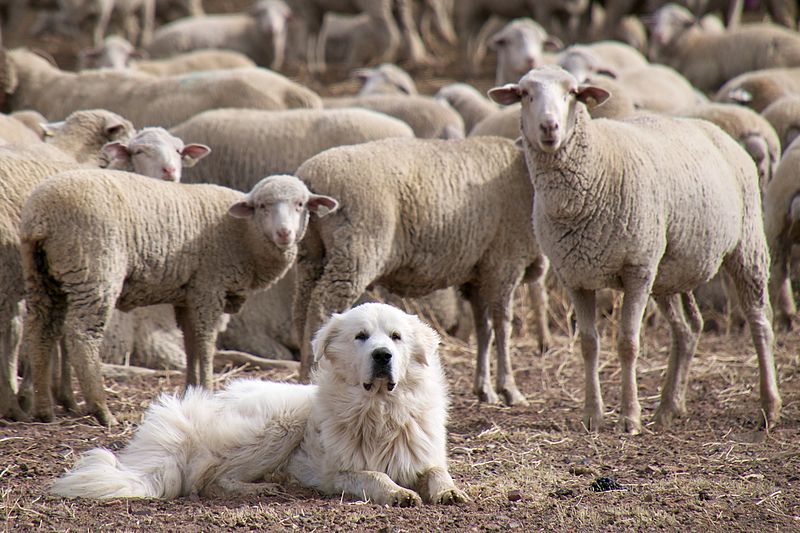
The Great Pyrenees was bred to be a farm dog. These gentle giants are perfect for large families, barnyard animals of all shapes and sizes, and outdoor living.
The Great Pyrenees is a very large dog, and they can keep smaller predators at bay. They make excellent watchdogs, but they are generally never aggressive with people.
2. Border Collie
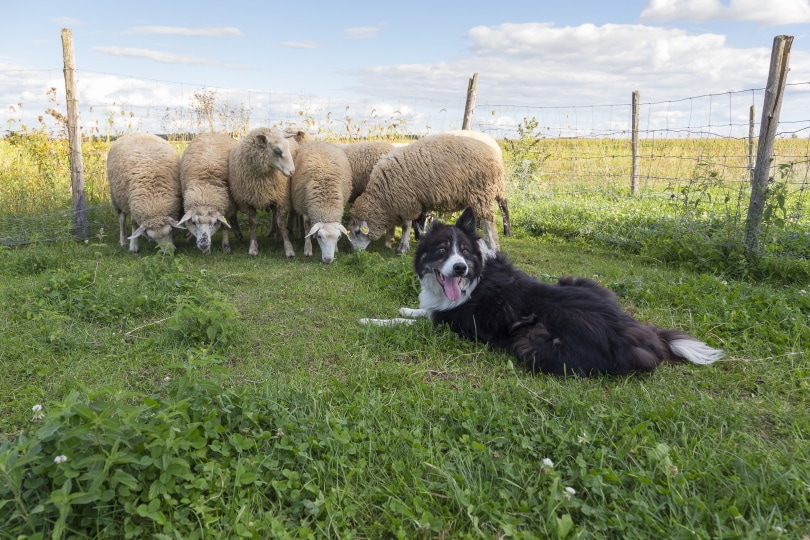
The Border Collie is a highly motivated, capable dog that will love life on the farm. This farm dog is famous for herding sheep, protecting livestock, and making an excellent family companion.
They are also known for their high speeds and agility skills.
3. German Shepherd
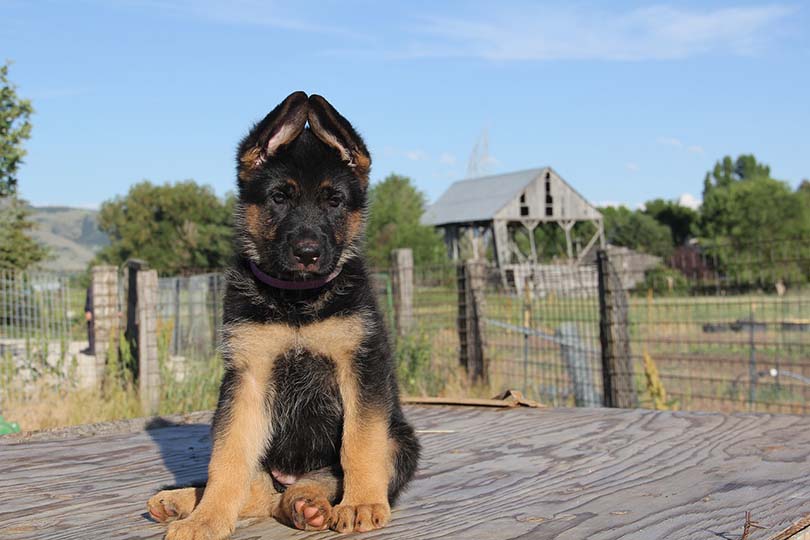
The German Shepherd is an all-purpose dog that can perform several tasks. They make excellent pets but are also trained for search and rescue missions, military duties, and police work. It’s no surprise that they make excellent farm dogs as well.
Due to their high prey drive, they might not be the best additions to farms with free-range chickens and ducks. However, with adequate training, they can learn to get along with the farm animals.
4. Australian Cattle Dog
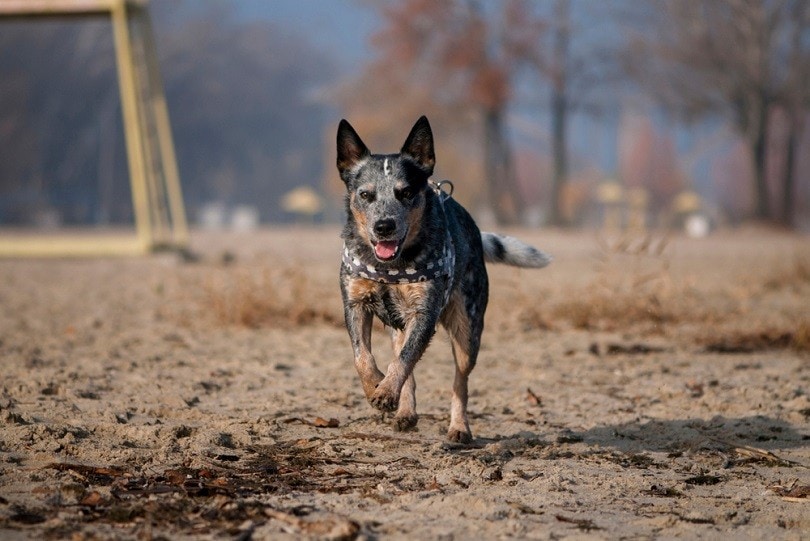
The Australian Cattle Dog is a medium-sized breed with strong herding tendencies. If you have sheep, pigs, or other livestock, the Cattle Dog can keep them in line.
Due to their tendency to nip heels, they are sometimes not the best for homes with small kids. They naturally take on a herding instinct and do not mean to hurt anyone when they nip their heels, but it can be concerning nonetheless.
5. Anatolian Shepherd
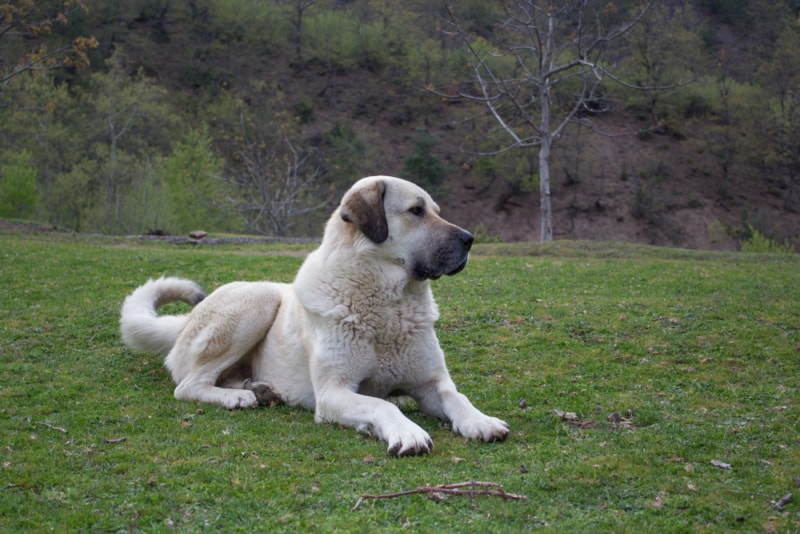
The Anatolian Shepherd is a massive, docile dog whose primary purpose is protecting flocks. So, if you have a property with poultry or waterfowl, the Anatolian Shepherd will make an excellent protector.
Because they are patient, highly intelligent, and very affectionate, they also make excellent guard and companion dogs.
6. Old English Sheepdog
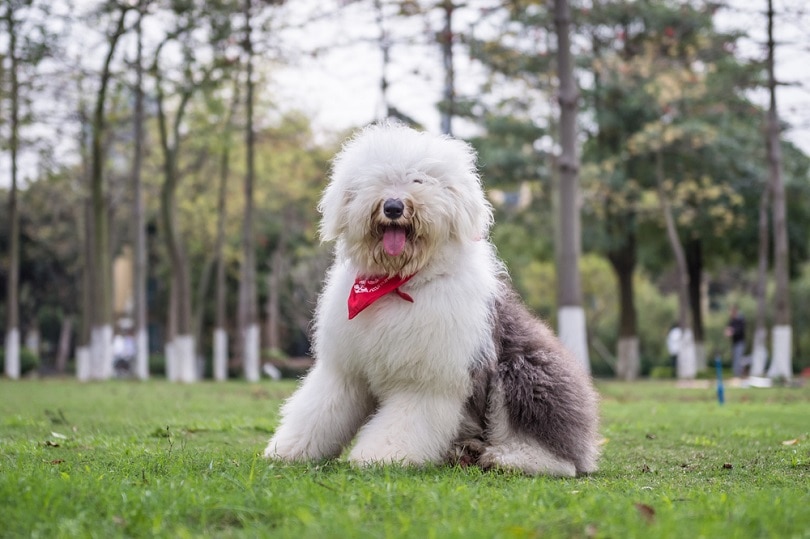
The Old English Sheepdog is a fun-loving barn dweller who thrives on living outdoors. While they can make wonderful indoor companions, they love going out to do all of the farm work with you.
Sheepdogs are very amiable and calm, making them terrific for children. Their low activity levels make them less likely to run off.

Conclusion
Many dogs would make marvelous additions to the farm, even if they aren’t on our list of top farm breeds. Dogs can brighten your day regardless of their purpose or role, but it’s vital to select a breed that can handle farm work and perform the specific roles you’re interested in. So, if you have the resources and the time to train them, a farm dog can benefit your family and business.
Featured Image Credit: Shutterstock
